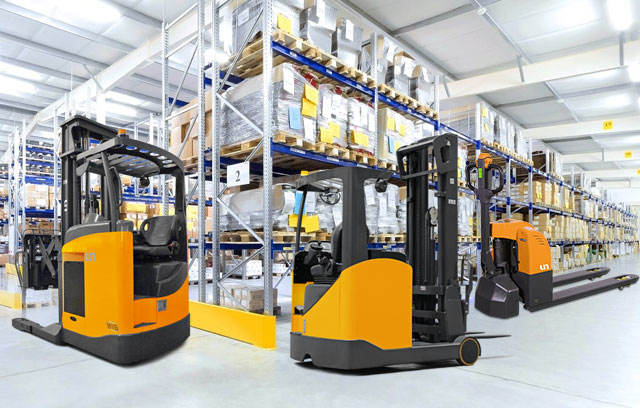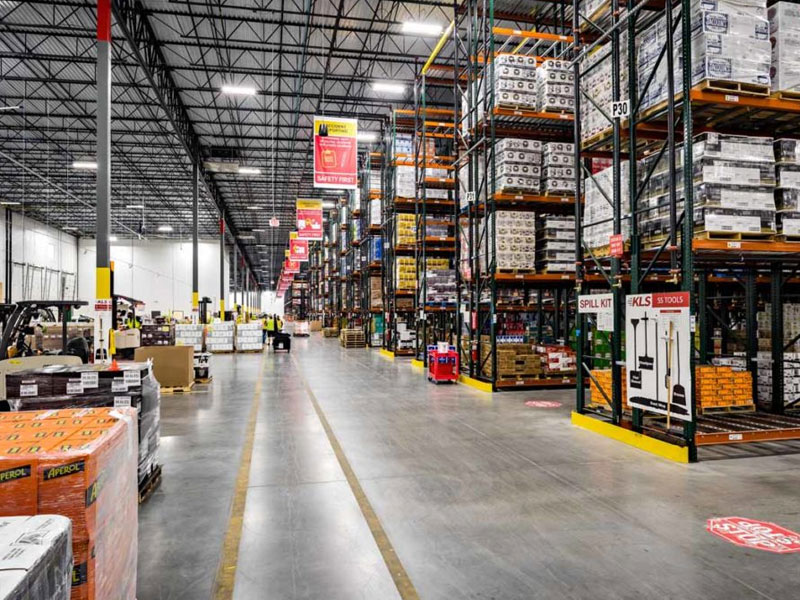Lithium forklifts incorporate several safety features to address concerns related to battery safety. These features are designed to ensure the safe operation, charging, and maintenance of lithium-ion batteries. Here are some common safety features found in lithium forklifts:
Battery Management System (BMS):
The Battery Management System monitors and manages the individual cells within the lithium-ion battery. It helps prevent overcharging, over-discharging, and overheating, ensuring the battery operates within safe limits.
Thermal Management:
Thermal management systems regulate the temperature of the lithium-ion battery during operation and charging. This helps prevent overheating, which can be a safety concern for lithium-ion batteries.
Temperature Sensors:
Temperature sensors are integrated into the battery pack to monitor and control temperature variations. If the temperature exceeds safe limits, the forklift system can take corrective actions, such as reducing charging rates or initiating cooling measures.
Current Limiting:
Lithium forklifts are equipped with current-limiting features that control the amount of current flowing into or out of the battery. This helps prevent issues like thermal runaway, which can occur due to excessive current flow.
Overcharge Protection:
Overcharge protection mechanisms prevent the lithium-ion battery from being charged beyond its safe capacity. This protects against potential hazards associated with overcharging, such as cell damage or thermal events.
Over-Discharge Protection:
Over-discharge protection prevents the lithium-ion battery from being discharged below a certain voltage threshold. This feature helps maintain battery health and prevents unsafe operating conditions.
Cell Balancing:
Cell balancing ensures that each cell within the lithium-ion battery pack is charged and discharged evenly. This helps prevent imbalances that can lead to safety concerns and uneven battery wear.
Charge Interruption:
Lithium forklifts may have charge interruption capabilities that temporarily halt the charging process if abnormalities or safety risks are detected.
Short Circuit Protection:
Short circuit protection mechanisms prevent the occurrence of short circuits, which could lead to thermal events or damage to the lithium-ion battery.
Voltage Monitoring:
Voltage monitoring systems continuously track the voltage levels of individual cells, providing real-time information to the battery management system. This helps prevent issues associated with overvoltage.
Emergency Disconnect Switch:
An emergency disconnect switch allows for quick and complete disconnection of the battery in case of an emergency or when performing maintenance tasks.
Fire Prevention Measures:
Lithium forklifts may be equipped with fire prevention measures, such as flame-retardant materials and barriers, to mitigate the risk of fire in case of a battery-related incident.
Built-In Fire Suppression Systems:
Some advanced lithium forklifts may feature built-in fire suppression systems that can automatically activate in the event of a thermal event or fire.
Impact Sensors:
Impact sensors can detect collisions or impacts, and in certain situations, trigger safety protocols, such as shutting down the forklift or initiating an emergency disconnect of the battery.
User Interface Warnings:
User interface systems, such as display panels or indicators, provide warnings or alerts to operators about potential battery issues, encouraging proactive safety measures.
Training and Education:
Comprehensive training programs educate operators and maintenance personnel on the safe handling, charging, and maintenance procedures specific to lithium-ion batteries.
Fume Extraction Systems:
Some lithium forklifts may incorporate fume extraction systems to remove any potentially harmful gases released during extreme battery conditions.
These safety features work together to minimize the risk of accidents or incidents related to lithium-ion batteries in forklifts, ensuring safe operation in various industrial and warehouse settings.











 中文简体
中文简体 عربى
عربى Español
Español














